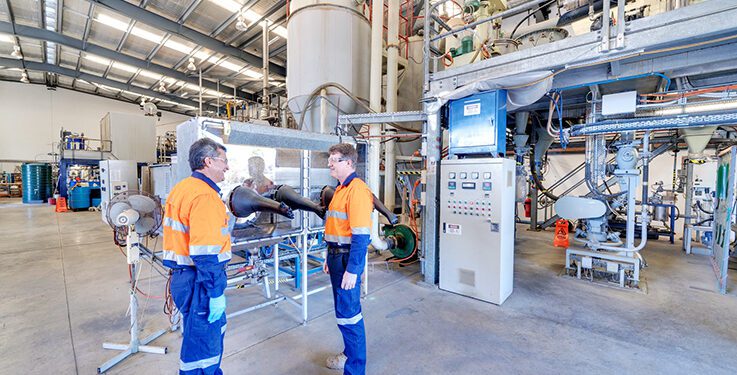R&D Into Solid-State Lithium Metal Batteries
Lithium Australia (ASX:LIT) subsidiary VSPC Ltd has reached agreement to join research and development (R&D) for solid-state lithium metal battery technology: the next generation of lithium batteries.
The R&D is to be conducted under Australian Research Council (ARC) Grant awarded to the University of Technology Sydney (Centre for Clean Energy Technologies) (UTS) in conjunction with Industry Partner Advanced Battery Technologies Pty Ltd.
VSPC Ltd, a wholly owned subsidiary of Lithium Australia, recognises the importance of R&D for continuing improvements to battery components and performance.
VSPC has agreed to fund a research programme which will focus on key innovations around battery design components to be used in conjunction with Lithium metal anodes
The company has committed to provide industry support funding of up to $250,000 over 3 years (with an initial investment of $30,000) for ARC Grant LP200200926 entitled Solid-State Lithium Batteries Using Phase-Stabilised Electrolytes.
Research and development on solid-state lithium metal batteries R&D under the ARC Grant will be conducted by UTS which will focus on key innovations for solid-state lithium metal batteries.
R&D will focus on three areas including investigations on: – Performance characteristics of batteries using three of the most prospective solid-state electrolytes identified to date, – Two cathode types, and – The use electrode interface controls that protect electrolytes with the aim of significantly increasing cell cycle life.
Why solid-state lithium batteries? All-solid-state lithium metal batteries are recognised in the industry as the most likely path to achieving the next step-change performance increase above the potential of lithium-ion battery (‘LIB’) technology.
Lithium Australia Managing Director, Adrian Griffin, said an all-solid-state, lithium-sulphur (Li-S) battery potentially offers two to three times the specific-energy values compared to LIBs. Also targeted are major improvements in the chemical stability and toxicity of electrolytes, operating life and overall safety
“If this R&D is successful, it provides VSPC with an opportunity to produce all three of the battery components: cathode, anode and electrolyte, and influence battery design to maximise critical materials and overall recyclability,” Mr Griffin said.
“It also allows VSPC to partner with UTS’s world-class research team and support development of Australian leadership in solid-state battery technologies development. The collaboration is a further step on the path of Lithium Australia’s engagement in realising the most effective solutions for the renewable energy transition underway in Australia and globally.”
For further information please visit: https://lithium-au.com/












